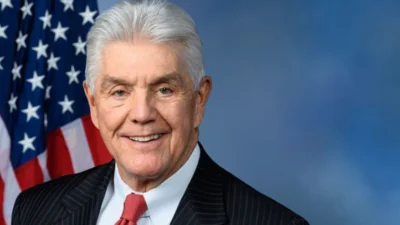Energy and Commerce Chairman Frank Pallone, Jr. (D-NJ) delivered the following opening remarks today at a Consumer Protection and Commerce Subcommittee hearing titled, “Protecting America’s Consumers: Bipartisan Legislation to Strengthen Data Privacy and Security:”
Today, the Subcommittee is taking a significant step of putting consumers back in control of their data and protecting their privacy.
Over the years, this Subcommittee has discussed major breaches and scandals involving the misuse and unauthorized sharing of people’s data. We’ve also talked about how emerging technologies can be used by companies in unintended and potentially harmful ways, including targeting our children.
Our privacy is something we each confront on a daily basis. Almost every company we interact with is conducting surveillance on us. When we visit a single website, many companies are tracking our actions on that site, and we all visit many sites every day.
That’s why there is near universal agreement that a national data privacy and security law is urgently needed to protect consumers. More than half of all U.S. adults now say they have declined to try a product or service because they feared how their data might be used–or abused–if they did so.
There is simply no real “choice” when consumers must trade their personal data to use essential services. People cannot navigate the modern world without their smartphone or email address. And with the minimal protections that apply today, most Americans have little reason to think their data won’t be used in unanticipated ways.
Comprehensive, national privacy legislation is necessary to limit the excesses of Big Tech and ensure Americans can safely navigate the digital world.
For far too many years, Congress has tried and failed to advance comprehensive federal privacy protections, but today, with the American Data Privacy and Protection Act, we have a real chance to begin doing what many in Washington have said was impossible.
This proposal is the first serious, bipartisan, bicameral, comprehensive national privacy bill that directly confronts the sticking points which derailed earlier efforts.
This legislation represents a fundamental shift in how data is collected, used, and transferred. It rejects the coercive “notice and consent” system that has totally failed to protect Americans’ data privacy and security.
At its core, the draft legislation requires relevant uses of personal data to be reasonably necessary, proportionate, and limited to the services consumers are requesting. The bill adds individual rights that allow people to control their data, opt-out of targeted advertising, and stop their data from being sold without their permission. Our kids will be protected from abusive advertising and data transfers. And businesses will be required to protect consumer data or face real consequences.
I also believe data privacy rights are civil rights, and this draft legislation ensures that online discrimination is prohibited. It also requires the largest companies to conduct impact assessments on their algorithms, including whether they may harm protected classes.
To ensure innovation continues and Big Tech players are not cemented in place, this discussion draft imposes different obligations on different kinds of businesses to reflect their roles in the internet ecosystem. Steps are taken to limit the compliance burden on small and midsize businesses without sacrificing consumer protections.
Large data holders, like Big Tech, face additional requirements and obligations and data brokers that profit from buying and selling your data are brought out of the shadows.
The bill also provides for robust enforcement by the Federal Trade Commission, state attorneys general, and individuals. It takes a balanced, thoughtful approach to existing laws by setting up a strong national framework and preserving room for states to continue protecting their residents where the bill’s protections stop.
While Congress has stalled on privacy, the rest of the world has not. The European Union and even China have passed comprehensive privacy laws. American companies have continued to innovate while their federal government has struggled to keep pace. This bill would immediately reset the global landscape.
I want to thank Ranking Member Rodgers, Senator Wicker, and Subcommittee Chair Schakowsky and Ranking Member Bilirakis for their relentless commitment to coming to a bipartisan consensus on this discussion draft. I also thank many members of this Subcommittee for their tireless efforts as this legislation includes so many proposals from our members over the years.
Today’s hearing comes after many hearings and roundtables focusing on protecting our privacy online. This draft legislation is the culmination of all that work. I look forward to continuing that process today and keeping the momentum going to finally pass this critical privacy legislation.
Original source can be found here.









